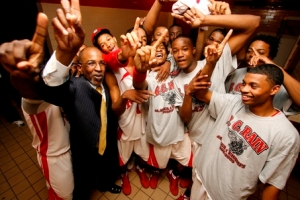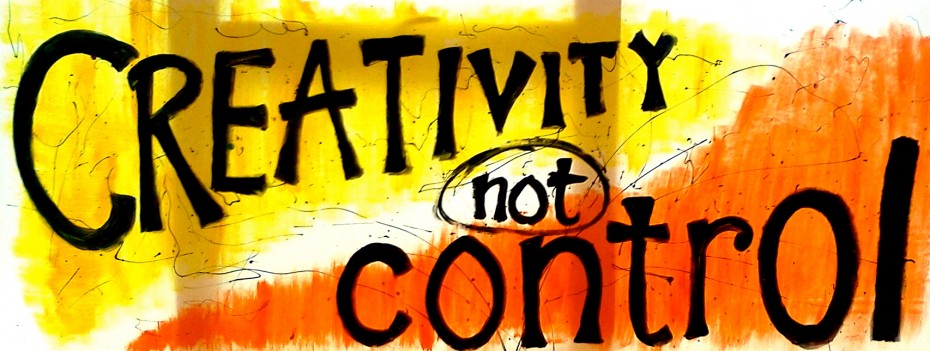 On this blog, we’ve been arguing for learning in the classroom that involves cooperation, creativity, and horizontal solidarity, instead of competition, standardization, and centralized, top-down authority. But what about learning on the basketball court, the football field, the volleyball court, etc.?
On this blog, we’ve been arguing for learning in the classroom that involves cooperation, creativity, and horizontal solidarity, instead of competition, standardization, and centralized, top-down authority. But what about learning on the basketball court, the football field, the volleyball court, etc.?
To reflect on that question, I’m posting a piece by Veryl, an educator and a basketball coach in Seattle. As a radical, he insists on direct democracy and horizontalism as general principles of social organization in the classroom and in popular movements. But he struggles to reconcile this anti-authoritarianism with his observation that teamwork on the court often depends on the centralized authority of a coach who is able to challenge star players to perform as part of a team. The coach pushes the team to change up their strategy based on how each individual person on the team grows and changes. This suggests that strategizing and leadership involve some level of caring work; the coach must pay close attention to the needs and development of each player, providing the kind of support each person needs to grow. Sometimes, this means pushing a star player to step off the court and get his/her/their shit together.
The entire post on his blog is worth reading, including the comments; there, another person challenges Veryl, suggesting that players might fill these team-building roles themselves if they were not trained to rely on coaches to fill them:
Maybe winning basketball games with a dictatorial asshole at the helm isn’t the most important thing in sports. Maybe pickup games are actually more authentically basketball than highly structured, hierarchical “programs.” Perhaps pickup is a practice in on-the-fly cooperation and self-management. True, most athletes living in racist, sexist, and capitalist societies aren’t particularly adept at this sharing and coming together as a team in a short amount of time. But, how much more valuable is that attempt (and possible success) than being, as you say, a “pawn” in some egotistical, power-hungry, white man’s world?
Veryl replies with some interesting insights based on his coaching experiences. This is a sophisticated debate, drawing from the analyses of the Afro-Carribbean Marxist luminary CLR James and the cutting-edge Marxist feminist Sylvia Federici. It also mirrors some philosophical debates about Deleuze and rhizomatic informal organization that I’ve been meaning to read more about.

The political economy of cynicism
19 FebHypothesis 1:
The cynicism, flippancy, snarkiness, and anxious arrogance of the American intelligentsia is produced by obnoxious shards of academic humanities programs clashing with each other as the wrecking ball of austerity hits US universities.
Evidence:
As the bourgeoisie restructures education, there are fewer tenure track positions at universities, especially in the humanities. So the existing pool of graduate students must compete with each other to get those jobs. This turns graduate school into something like a training camp for an academic American Idol contest. Postmodernists and Enlightenment Grand Masters go at it like characters in the Hunger Games. The social mission of the graduate student is to destroy the competition, to come up with some new boutique intellectual product that can be sold. Often this is a critique of someone else’s product, like an up-and-coming Pacific Northwest coffee shop with it’s sarcastic anti-Starbucks ads.
This competition does not drive up the quality of intellectual production; it incentivizes splitting hairs and trivializing language and analysis. Niche markets proliferate to the point where everything becomes a niche, so nothing is.
To make it as the next Intellectual ™, grad students and young professors have to hate on each other, get into all sorts of petty fake rivalries that drive up each others’ status, use their privilege, critique their privilege, critique other people’s privilege, use this to gain privilege, critique themselves for doing that, participate in social movements, wish they were participating in movements, critique movements for not confirming their theories, and so on.
Out of the thousands who do this, a few emerge as the next Slavoj Zizek. Most become overworked functionaries who entertain people with sarcastic jokes when they are drunk.
There are graduate student comrades who resist these immense social pressures and end up playing sincere roles in social movements or in the education of future undergrads. They are less snarky because they learn to think and act with others. But most of them will never be recognized by academia and will become adjunct community college professors if they’re lucky.
Given these pressures, people should think twice before they encourage young intellectuals to enter PHD programs in the hope of becoming professors.
One possible alternative:
Over time, those of us who like thinking and learning creatively will end up building communities where we can learn all the things people try to learn in PHD programs and more – in a healthier, less competitive environment.
Hypothesis 2:
The snarkiness, cynicism, flippancy, and anxious arrogance of the American intelligentsia is also a product of journalists competing for attention in a world overstimulated by an unprecedented level of media production. Shock value becomes an asset if you want to be heard above the chatter of the Internet. So does that old modern sarcastic game of “whatever you can do, I can do meta”. Like graduate students, journalists compete to find the hidden truth behind what other people say, to the point of reducing everything to cynical games of words and images. Expose everyone’s hypocrisy except for your own – unless a market for self-deprecation emerges.
Evidence:
One possible alternative:
Over time, those of us who like searching for truths will end up building communities where we can share difficult stories fearlessly without fake objectivity or cynical self-consciousness. We will realize we are all hypocrites in some way, which is why we need to communicate with each other, finding out what’s going on together.
Tags: Academia, Anti-Capitalism, Competition, Cynicism, graduate student, graduate students, Humanities programs, intellectual product, intelligentsia, Journalism, PHD programs, social movements